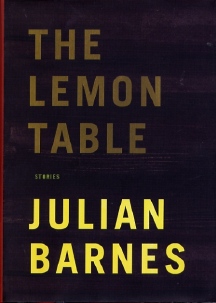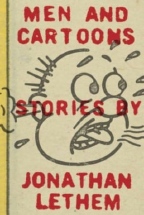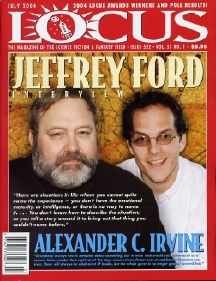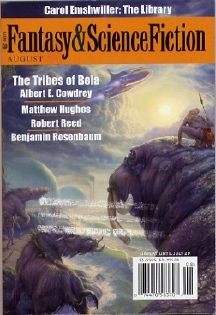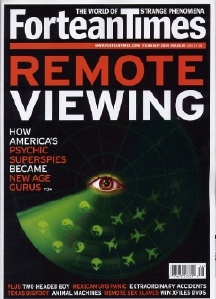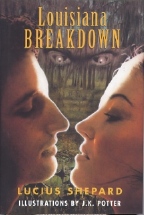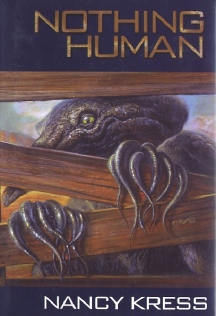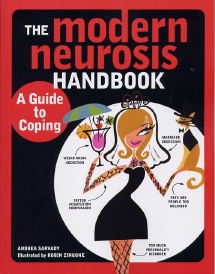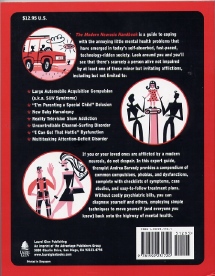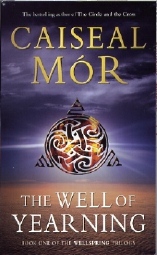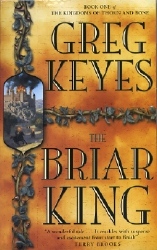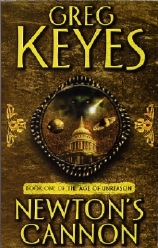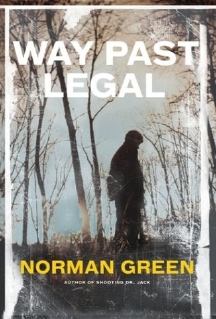|
|
|
This Just in..News from the Agony Column
|
07-09-04: Step Up to 'The Lemon Table'; Three Magazines, Three Months in One Month |
|||||||||||
Julian
Barnes and the Renaissance of the Literary Short Story Collection
But taking a look around at our youth-obsessed cultchah, you're not going to find a lot of sagacious writing about getting old. Writer Julian Barnes aims to correct that imbalance with his latest collection of short stories, 'The Lemon Table'. In fact, there are a number of corrections at hand here. First is the resurgence of the short story collection. Ask anybody in the writing business and they'll tell you that a collection of short stories will get you a smile, a nod and a call that never comes. The common wisdom is that short story collections don't sell. Of course, the common wisdom neglects to mention that if short story collections aren't printed and sold, well, is it a huge surprise that they don't sell? Of course, the small press has made a bundle out of this and long may they continue to do so. Recent collections of note include Kage Baker's 'Mother Aegypt', Jeff VanderMeer's 'Secret Life' and Ian R. Macleod's 'Breathmoss and Other Exhalations'. But on the literary side, you seem to have to be something of a superstar to get your name in print with a collection of stories from one of the New York Monoliths. Fortunately, there are a few who do so regularly. TC Boyle's last collection 'After the Plague' ventured in speculative regions and we can be certain that Jonathan Lethem's forthcoming collection 'Men and Cartoons' will be most memorable. David Foster Wallace is courting 'Oblivion' with his new collection of stories, and E. L. Doctorow offers up a collection of 'Sweet Land Stories'. But leading the pack is the elegant work of Julian Barnes.
"… Normally, he would talk with a sort of smiling complicity. His use of irony prevented him from seeming deferential, but also from seeming entirely serious. Our way of conversing was long-established: companionable, chummy, oblique, warm, yet essentially distant. English, oh yes it's English, by Christ it's English." Barnes sensibility is perfect for bringing out the sweet and sour mixture of hope and hurt that run side-by-side as we grow older. 'The Fruit Cage' is funny, sharp as a needle and hurtful enough not to be forgotten. As we age, we actually look back with fondness on some of the injuries we bear. They made us what we are today, we tell ourselves. Barnes captures the injury and the telling one's self with a clarity that's startling and exciting. One of the charms of short stories in general and especially those in this collection is the reader's ability to see the inner workings of the writer's craft in miniature, with a kind of clarity that's not really possible in novels. Reading 'The Fruit Cage' is like seeing a harpist perform Bach. Not only are the notes themselves gorgeous, but you can see each pluck, each delicate motion that goes into making the music and enjoy the artistry on two levels at once. It's a fascinating experience. It's also an experience you're going to be less and less likely to have as time goes by unless readers start to come round to buying the collections. Short story collections are particularly worth buying in hardcover, since you can read a story or two from a number of collections between novels. And if they’re hard to find, well, grow old and complain about it; or just complain about it and feel old. |
|||||||||||
Locus,
The Magazine of Fantasy and Science Fiction and Fortean Times
After submitting a story to 'The Magazine of Fantasy and Science Fiction' ("It just didn't grab me"), I got a solicitation to subscribe at least as personalized as my rejection slip. So, thinking, maybe I should see how I react to those pesky digest-sized deals in my currently advanced age, I wrote out a check, dropped the envelope in the mail and lo and behold, the first issue arrives. I'm pretty impressed, really. I had forgotten that Charles DeLint reviews for them, and his reviews are always an off-kilter delight. Here he gets into a book I wanted to read and whose author I wanted to interview, Laurie Fox's 'The Lost Girls'. Fiction of course is the main attraction here. I don't know anything about Albert E. Cowdrey, but he's got a 60-page novella in here and a forthcoming novel. Robert Reed is a very well-reviewed author I have yet to read, but now's my chance. 'The Condor's Green Eyed Child' is the third story in F&SF about a Native American boy named Raven. All hail Carol Emshwiller, who with the help of Small Beer Press is on her way to becoming a household word in houses where the residents read F&SF. She's another writer, along with Reed, who's on my short list of people I want to read, and there's the hook: F&SF offers them up to me in a format that won't require tears over spilt salsa. Of course F&SF thinks it's August, but maybe that's because they're living in the future. Of course, Fortean Times needs no introduction, no explanation, no excuses. This time around, the cover story is a meaty look at our Remote Viewing program, which I read about in David Morehouse's exciting but dodgy 'Psychic Warrior'. FT updates things in style, and interviews some of the current leaders of this weird little corner of experimentation. And while robo-rat and other recent advances give us a glimpse of the future of machine-organic interfaces, Ian Simmons gives us a delightful look at the past from the leech-driven Tempest Prognosticator to the BF Skinner's trussed up missile-guidance pigeons. Fortean Times may be the publication's name instead of Fortean Dates, but you'd still hope that this, the September 2004 issue, doesn't somehow find itself in a Dewey Wins scenario. But then, it's not too difficult to imagine the prospects for a headline like "Remote Viewing: Inanity or Nonsense?" from the conventional press, is it? |
|
07-08-04: Two More Golden Finds from Golden Gryphon |
|||||||||
Lucius
Shepard's 'Louisiana Breakdown' And 'Nothing Human' from Nancy Kress
So how I missed the original day-one Golden Gryphon publication of Shepard's 'Louisiana Breakdown' illustrated by J. K. Potter I'll never know. But now that I'm caught up, I'm even more impressed with Golden Gryphon's efforts in the world of non-book brick novel publication. With endpapers and several of Potter's unique black-and-white collages, 'Louisiana Breakdown' looks to be a delectable bit of horror fiction. (Though they want to call it 'dark fantasy' to avoid the HORROR STIGMA.) But I wonder if there's a bit of science fiction happening as well. That's because we have a musician stuck in a one-horse town on the edge of the continent and the edge of reality where every twenty years, the Good Grey Man gets a new fresh, ten-year-old Midsummer Queen. The old Queen is hotter than hell and just hooked up with that broke-down musician. Tonight she sheds her crown.
Another book I've been looking at in Bookshop Santa Cruz is 'Nothing Human' by Nancy Kress. And after a conversation with Pat Lupoff, wife to author Dick Lupoff and book buyer for the respected independent bookstore Cody's, I'm even more interested. For what Kress offers here is nothing less than Apocalypse in about 300 pages -- with monsters, and ideal, so I'm told for both the adult audience who typify the Golden Gryphon buyers but also for their maturish adolescent readers. Yeah, that like narrows it down to say, one in 50,000, unless Kress can tap into that rich vein of Harry Potter readers. Or more precisely, the rich vein of Harry Potter book-buyers, who may not be congruent with the reading audience.
Now Kress isn't small potatoes. She's won a Hugo, Nebulas and is the Fiction columnist for Writer's Digest Magazine. This here book is just loaded with potential. Electric sparks must have been zapping me every time I picked it up at the bookstore. Moreover, you can actually get it at the bookstore, though a publisher-direct order is always better at supporting the publisher of such fine literature. Here's the choice that we as readers of fine but odd fiction face. We either buy the good stuff in hardcover, direct from the publisher if it's a small press, or from an independent bookseller if it's a major NY house release. We buy it in hardcover. Or they stop making them. Simple as that. The money involved here is pretty much chump change in a world where fast food burgers for two will set you back more than ten bucks and twelve million evil-food points. Eat or read. I know my choice. |
|
07-07-04: Where No Man Has Coped Before |
||||
Andrea
Sarvady and Robin Zingone Offer 'The Modern Neurosis Handbook'
But were I to have a coffee table (Home Renovation Phobia, page 42), this book might be welded to said table. In the interminable interim, it will be forced to live on the dining room table, where it can be foisted off on strangers, friends and the occasional visitors who happen by the house and normally couldn't give a fig what I'm reading. Or I could simply order a number of copies to be sent to my friends who already have a stack of books from me taller than they are, just waiting to be read. (Inappropriate Gift Selection Disorder, page 127). The problem with books of this type is that we all want to think they apply only to everyone else. At least in 'The Modern Neurosis Handbook', writer Andrea Sarvady and illustrator Robin Zingone have made it rather fun to identify your own disorders. (Too Much Personality Disorder, page 119.) For example, I suppose that I could barely, just barely, be accused of having Permanently Plugged-In Compulsion (Page 24). I did, after all, sit on a hotel deck and work on columns while in Hawaii. That's not quite a desire for a submersible laptop, but then, I don't scuba dive. It's equally fun to look up the problems you know you'll never have. For example, it seems to me unlikely that I'll ever have to worry about Health Regimen Discussion Compulsion. (Page 50) Why I'm practically garrulous about the reverse, so how could I suffer from that one? And so on. Of course, one of the joys of this book is that it's very nicely illustrated and designed with that sort of retro-chic look that one finds just everywhere. Credit illustrator Zingone for work very well done. For the legions of us who have Amateur Therapist Delusion (page 71), Sarvady and Zingone have done a tremendous service. For the many who will find this book a delightful mix of clever satire and satisfyingly simple design, why not call up Zeising and put one on order. For the infinitesimally small percentage of us who are balanced and happy, well, you may not have to buy this book after all, though you should. You can always hope that someone with Inappropriate Gift Selection Disorder will buy it for you. |
|
07-06-04: The Keyes to the Kingdom and Mor |
||||||||
A
Trio Of Fantasies from the UK; Greg Keyes and Caiseal Mor
OK, so you've got me over a barrel with some slack-jawed slavering fantasy tropes -- monsters and Templars -- that particularly appeal to me. But wait -- there's more! This is the third trilogy, right? Check. The first two; 'The Wanderers' ('The Circle of the Cross', 'The Song of the Earth', 'The Water of Life') and 'The Watchers' [presumably those critters referred to above] ('The Meeting of the Waters', 'The King of Sleep', 'The Raven Game') are all still actually in print! Can you believe that? You might find it more difficult if perhaps you were one of those who orders books for bookstores. A recent round-table I held with publishers, writers and even a book-buyer revealed the all-too-common-situation wherein someone finishes a series, then decides to write a prequel. Bookstore orders prequel, tries to order sequels, ooops! -- they're OUT OF PRINT. That's NOT the case with Caiseal Mor. And with only seven books to read, why you should be able to easily finish off the first two series and this novel before George R. R. Martin brings in the latest novel in his fantasy series.
But in the UK, they're re-publishing a series that's of even more interest to me, which I missed the first time round here in the US. Yes, I admit it, I blink on occasion. During one of my infrequent blinks (got to keep the eyes moist you know, all that reading to do) the novel 'Newton's Cannon' was released. Here's an alternate history/fantasy that I can really hang with and one that to a certain extent presages the appearance of Neal Stephenson's tremendous 'Baroque Cycle'. Now you can get the sequel to 'Newton's Cannon' in the US, ('A Calculus of Angels') but not the book itself; good thing you can get it in the UK. The story finds Sir Isaac Newton successfully creating Philosopher's Mercury and unleashing an alchemical revolution. At 368 pages, for some folks I know this is a one-day read. For me it would take a bit longer but the intriguing premise jets it up on the want-to-read-o-meter. I really wonder what my decision would be if I was offered the opportunity to just download the book to my consciousness. Would I do it? I don't think so, as the time spent reading is what makes it so uniquely enjoyable. So here's a bunch of time ready to spend. Evelyn Wood, where are you? |
|
07-05-04: "Everything I learned I learned in Attica"; Committing Suicide to Get Ahead in Life |
|||
|
From One Last Heist to 'Way Past Legal' with Norman Green By Terry D'Auray
First is Norman Green's 'Way Past Legal' (Harper Collins) his third novel after 'Shooting Dr. Jack' and 'The Angel of Montague Street'. It's the story of Manny, an "everything I learned I learned in Attica" ex-con, who sets up his retirement the old fashioned way – by staging one last heist. He steals the loot, he steals his partner's share of the loot, and he steals his son from foster care and heads for the wilds of Maine to begin anew. In Maine, he bonds with his son, connects with the locals, and begins his breakout from the world of crime. Until, of course, the bad guys from his past come looking. At first sniff, it sounds like the story could be a sort of dark and twisted 'Little House on the Prairie' with father-son bonding and salty down eastern Yankee values. But a quick read of the first sentence makes it pretty clear that Green's not going to take it that way. "Time, a guy once told me, ain't nothing but one goddam thing after another." Prisoners have a real way with words. |
|||
'American Desert' by Percival Everett
Well, that was not to be the case. 'American Desert' is the story of Theodore Street, decapitated in an auto accident as he's driving to the ocean to commit suicide. And thus the irony begins. At his funeral days later, Street pops from the coffin, resurrected from the dead, the sloppy stitches that hold his head on clearly visible, and resumes his former life. Well, not quite. Hounded by the press, vilified by a satanic cult, he becomes a sought-after specimen for scientists and an embarrassment to his daughter. Everett promises biting social commentary, offbeat humor, and satire mixed with strangeness, a pretty enticing combo. Intrigued by the book, I spent a little time learning about Mr. Everett, a southern-born scholar, professor, writer and fisherman fascinated with the offbeat, the political and the philosophical. His books span a genre-defying gamut from western to parable, from satire to politics; his profile sports a healthy dose of self-deprecating humor. "I learn a lot writing. And with every book I learn more about how little I know. So by now, at the end of fifteen books, I know a lot less than almost anybody". (More at Robert Birnbaum talks with Percival Everett ). |
